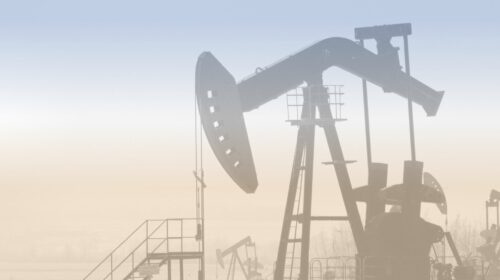Pakistan could be teetering on the brink of yet another fuel crisis. It is about time the policymakers take decisive actions that can eliminate such threats for good.
A few days ago, the Oil Companies Advisory Council (OCAC), the representative body for the downstream petroleum industry, warned that a fuel shortage might occur in some regions of the country in the near future since some oil companies experienced higher-than-expected sales last month while imports had been limited.
The increase in sales can be attributed to the rise in demand from the agriculture sector and the uptick in rehabilitation work for the flood victims.
The Oil and Gas Regulatory Authority (Ogra) swiftly refuted the oil industry’s claims, saying that there were ample inventories of petrol and diesel, and more cargoes will arrive soon. Although the clarification should give relief to the citizens, it doesn’t entirely eliminate the risk of a fuel crisis due to three reasons.
Firstly, the regulator neither clarified whether the industry experienced a surge in demand in October nor provided any outlook for November. So far, the strong sales trend seen last month has rolled over into November, which might push pressure on fuel inventories. Secondly, it remains unclear whether the fuel cargoes booked by OMCs (besides PSO) can arrive on time, particularly in the aftermath of the ongoing tightness in the global diesel market.
Thirdly, the domestic production of petrol and diesel might also decline. At least two oil refiners have recently warned that they could be forced to shut down operations due to slow upliftment of furnace oil.
This includes the leading fuel producer and the only refinery in the north that has confirmed it is running at 70% of capacity. This might adversely affect the domestic petrol and diesel production.
Note that the threat of low utilisation and closures is a chronic problem that has been hurting the oil refining industry for years. The oil refiners face weak and volatile demand for furnace oil, a key refined product that is used for electricity generation.
Pakistan might have sufficient stocks of petrol and diesel, as pointed out by Ogra, but that doesn’t negate the threat that some parts of the country might still face fuel shortage in the future. To avoid potential disaster, Ogra needs to take proactive measures by taking the OMCs on board and ensuring they meet any deficit through fuel imports.
Through timely imports of petrol and diesel, Pakistan can avoid a fuel crisis. However, there’s no denying the fact that an increase in imports, particularly for diesel, will likely hurt the country’s trade balance.
International markets are experiencing a shortage of diesel, which has pushed up the commodity’s prices. Diesel is a key component of the world’s economy and plays a critical role in maintaining the global supply chain.
It is used in trucks and trains, helping move everything from raw materials to finished products from one destination to another.
Diesel consumption has risen amid the global economic recovery while supplies got disrupted due to the Russia-Ukraine conflict and refinery closures (eg in France due to strikes).
The fuel’s inventories in the US, Europe and Singapore – three key storage hubs – were 24% below the 10-year average. As a consequence, the margins on diesel in Asia are trading at around 190% higher than 12 months ago.
Pakistan may have to import large quantities of this expensive fuel in case of a shortfall, otherwise commercial activities and the broader economy might come to a standstill.
Fuel imports are a double-edged sword. They fulfil the country’s energy demand but they’ve also pushed the trade and current account deficits to dangerously high levels.
The only sustainable solution is for the policymakers to pursue a strategy of raising domestic production of fuels. For this, the refining sector, which is responsible for producing petrol and diesel, needs to be strengthened.
The local oil refining plants have been meeting around 60-70% of diesel and 30% of petrol demand. But usually 40% of the nation’s oil refining capacity does not get utilised due to numerous issues, including a scarcity of financing options and the above-mentioned furnace oil problem.
The government should take the oil refining sector onboard and deploy policy tools on an urgent basis to ensure the refining plants fully utilise their installed capacities. The sooner this happens, the better, considering the lofty fuel prices in the international markets. This should meaningfully lift Pakistan’s petrol and diesel production.
Running oil refining plants at maximum capacities will have two obvious benefits. Firstly, this will reduce the nation’s fuel import requirements and help stem the outflow of dollars, thereby helping curtail the trade and current account deficits.
Secondly, this will greatly reduce the risk of a fuel crisis since Pakistan will always have ample inventories of petrol and diesel at home. This way, the threat of a fuel crisis may get resolved, once and for all. The writer focuses on subjects related to business and economics, specialising in the energy sector







